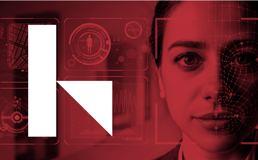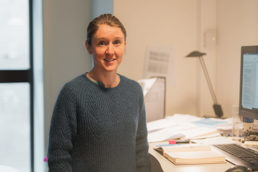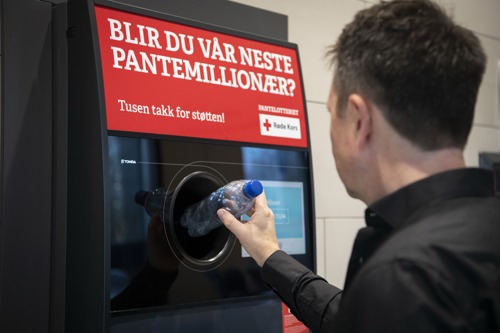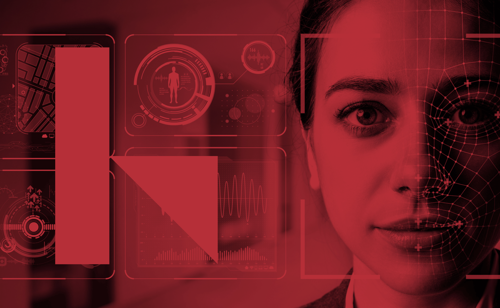Teaching is a profession in crisis
-
Sist oppdatert
4. desember 2023
-
Kategori
-
Tema
- Teaching
- Digitalization
- Critical information
Teachers need help to regain pride, status and professionalism around the world. This article offers 5 steps to help teachers as well as students meet changing society.
SCIENCE NEWS FROM KRISTIANIA: Leila Ferguson on teachers' situation
“Lack of training, unattractive working conditions and inadequate funding all undermine the teaching profession and aggravate the global learning crisis. UNESCO has always placed teachers at the heart of the fight for the right to inclusive and quality education. There is an urgent need to better recognise this profession on which the future of our children depends”. (UNESCO Director-General Audrey Azoulay, 2022)
While the teaching profession was previously held in high regard, teachers in many countries are no longer privy to such respect. Teacher education programmes and schools around the world are struggling to recruit and UNESCO has sounded the alarm on the global teacher shortage crisis.
There are multifarious explanations for the current lack of qualified teachers and high dropout rates from teacher education and the teaching profession. In the digital age acknowledge building is de-valued and students may have illusions of expertise and skewed views of knowledge. Teachers need help to regain pride, status and professionalism around the world.
This article offers 5 steps to help teachers as well as students meet changing society.
The de-valuing of knowledge building and the rise of information managing
A key characteristic of the digital age, in general, and the smart phone in particular, has been the proliferation and ease of access to information.
Given the convenience, speed and relative cheapness of smart phones, the need to ponder over tricky quandaries, or take the time to jog one’s memory, have been virtually eliminated: “Google it” has become the solution to almost every possible imaginable problem.

Meld deg på vårt nyhetsbrev
It thereby follows that young people question the value of struggling to comprehend and build a knowledge base (knowledge building) over accessing, using and, ultimately forgetting snippets of information. The relative value of knowledge acquisition, elaboration and deep understanding has been eroded.
This initial decline plummeted even more steeply with the advent of artificial intelligence solutions like Chat GPT, which has left academics around the world struggling to keep up with how to test students’ ability to understand, analyse and apply what they are supposed to learn through their studies, and students struggling to comprehend why they should bother.
Everyone’s an expert
Current trends in educational approaches, including inquiry- and problem-based learning, aim to maximize student activity, and perhaps counter passivity. They emphasise students’ ability to ask novel questions, gather relevant information and use it to present innovative solutions. These are twenty-first century skills that may help young people to engage in lifelong learning.
But there are empirical and theoretical reasons to critique this kind of didactic approach, and these student-centred methods have been heavily criticized for downplaying the importance of knowledge.

Les også:
Coupled with omni-present, ever-alluring online resources like Khan Academy and YouTube tutorials, that explain complex phenomena in simple steps, digital technology may be contributing to young people assuming expertise, or falling for the “easiness effect”.
This means that people feel like experts without really understanding complex issues or phenomenon, and, once again, reducing their experienced need (and motivation) for schooling.
All opinions are equal
When “everyone’s an expert” and “facts are lies”, it can be tempting to believe that facts and opinions are the same thing, and that they are constantly evolving, at neck-break speed.
In our “post-truth era”, it has become difficult, exhausting even, for laypeople to judge the veracity of information. If, indeed, everyone is an expert, then it becomes tempting for individuals to discount scientific research in light of their own “theories and research”, often conducted on social media and available to them because algorithms are trained to give the reader more of what they already “know”. And let’s face it, if all opinions are equal, then why should students listen to their teachers – what do they have to teach them?
All of the above can lead to apathy and confusion in students, and teachers who struggle to motivate them.
Five suggestions for change
If students are going to rely on solutions from artificial intelligence and search engines, they need to be able to make judgements about what they read and who has written it. In today’s world that also includes knowledge about how knowledge is produced and made available to us.
Here are some research-based suggestions from educational psychology that teachers can implement to motivate and empower their students, and themselves.
- Teach critical thinking. Since information is always at the tip of their fingers, students need deep knowledge in order to judge other knowledge claims and their validity. Furthermore, they need to be wary of echo chambers and willing to engage with views that conflict with their own. They need help from teachers to become critical thinkers.
- Build advanced views of knowledge. Anything goes views of knowledge and science-skepticism that plague students in the digital world are actually a necessary stage of young people’s developing views of knowledge. To help students to move beyond this and develop more advanced views of knowledge, teachers can open up scientific and argumentative methods and processes for students, showing them how science and its discourse evolves over time.
- Teach sourcing skills. To help students, teachers can stress the importance of checking the source of information. Sourcing skills like checking authors’ motives, credentials and perspective, can be taught in schools by teachers with deep knowledge of their discipline.
- Teach knowledge building practices. Teachers can combine inquiry and direct learning, so that students have the knowledge they need to ask good questions and to realise what knowledge they lack, or the motivation to do so. Everyone who has ever immersed themselves in a larger task knows that learning more ultimately leads to realizing how much they do not understand. However, the greatest predictor of students’ learning is precisely that – the prior knowledge that they have when they start working with a topic.
- Teacher educators and researchers also have a role to play in conducting rigorous and relevant research that they communicate, and raising teachers’ awareness of the importance of using evidence-based practices and teaching them how they can integrate this into their practice.
Text: Leila Ferguson, Professor, Department of Health Sciences, Kristiania
This text was first published at Science Norway on the 28th of November 2023 titled "Teaching is a profession in crisis".
References:
Alexander, P.A. (2018). Information Management Versus Knowledge Building: Implications for Learning and Assessment in Higher Education. In: Zlatkin-Troitschanskaia, O., Toepper, M., Pant, H., Lautenbach, C., Kuhn, C. (eds) Assessment of Learning Outcomes in Higher Education. Methodology of Educational Measurement and Assessment. Springer.
Braasch, J. L. G., Bråten, I., Strømsø, H. I., Anmarkrud, Ø. & Ferguson, L. E. (2013). Promoting secondary school students’ evaluation of source features of multiple documents. Contemporary Educational Psychology, 38, 3, 180-195.
De Jong, T. et al. (online first). Let's talk evidence – The case for combining inquiry-based and direct instruction. Educational Research Review, 39.
Dobson, S. (2023): Why universities should return to oral exams in the AI and ChatGPT era. The Conversation. Accessed 01.09.23 https://theconversation.com/why-universities-should-return-to-oral-exams-in-the-ai-and-chatgpt-era-203429
Ferguson, L. E. (2021). Evidence-informed teaching and practice-informed research. Zeitschrift für pädagogische Psychologie, 35(2-3), 199-208.
Kirschner, P. A., Sweller, J. & Clark , R. E. (2006). Why minimally guided instruction does not work: An analysis of the failure of constructivist, discovery, problem-based, experiential, and inquiry-based teaching. Educational Psychologist, 41 (2), 75-86.
Munthe, E. & See, B. H. (2022). Å rekruttere og beholde lærere i barnehage og skole – et kunnskapsgrunnlag. Kunnskapssenter for Utdanning, University of Stavanger.
Scharrer, L., Rupieper, Y., Stadtler, M., & Bromme, R. (2016). When science becomes too easy: Science popularization inclines laypeople to underrate their dependence on experts. Public Understanding of Science, 26(8), 1003–1018
Sinatra, G. M. & Lombardi, D. (2020). Evaluating sources of scientific evidence and claims in the post-truth era may require reappraising plausibility judgments. Educational Psychologist, 55(3), 120–131.
UNESCO (2022). World Teachers’ Day: UNESCO sounds the alarm on the global teacher shortage crisis (Unesco Press Release, accessed 30.08.23)
Varkey Foundation (2018). Global teacher status index. (Accessed 30.08.23)
We love hearing from you:
Send your comments and questions regarding this article by e-mail to kunnskap@kristiania.no.
Siste nytt fra Kunnskap Kristiania
 Kunnskap KristianiaLes mer
Kunnskap KristianiaLes merSlik endrer spill måten vi lever og lærer
Blir du fristet av pantelotteriet? Det er hele poenget. Kunnskap KristianiaLes mer
Kunnskap KristianiaLes merSelvbestemmelse er nøkkelen til bedring for romsamfunn
Langsiktig arbeid, hjelp til selvhjelp og internasjonalt samarbeid bidrar til bedre levekår for rombefolkningen i flere land Kunnskap KristianiaLes mer
Kunnskap KristianiaLes merSlik kan Vesten frigjøre seg fra autoritære og korrupte stater
Den geografiske konsentrasjonen av kritiske mineraler skaper strategiske utfordringer for Vesten. Kunnskap KristianiaLes mer
Kunnskap KristianiaLes merSix common characteristics of a crisis
Differences and similarities between event-based and prolonged crises.


